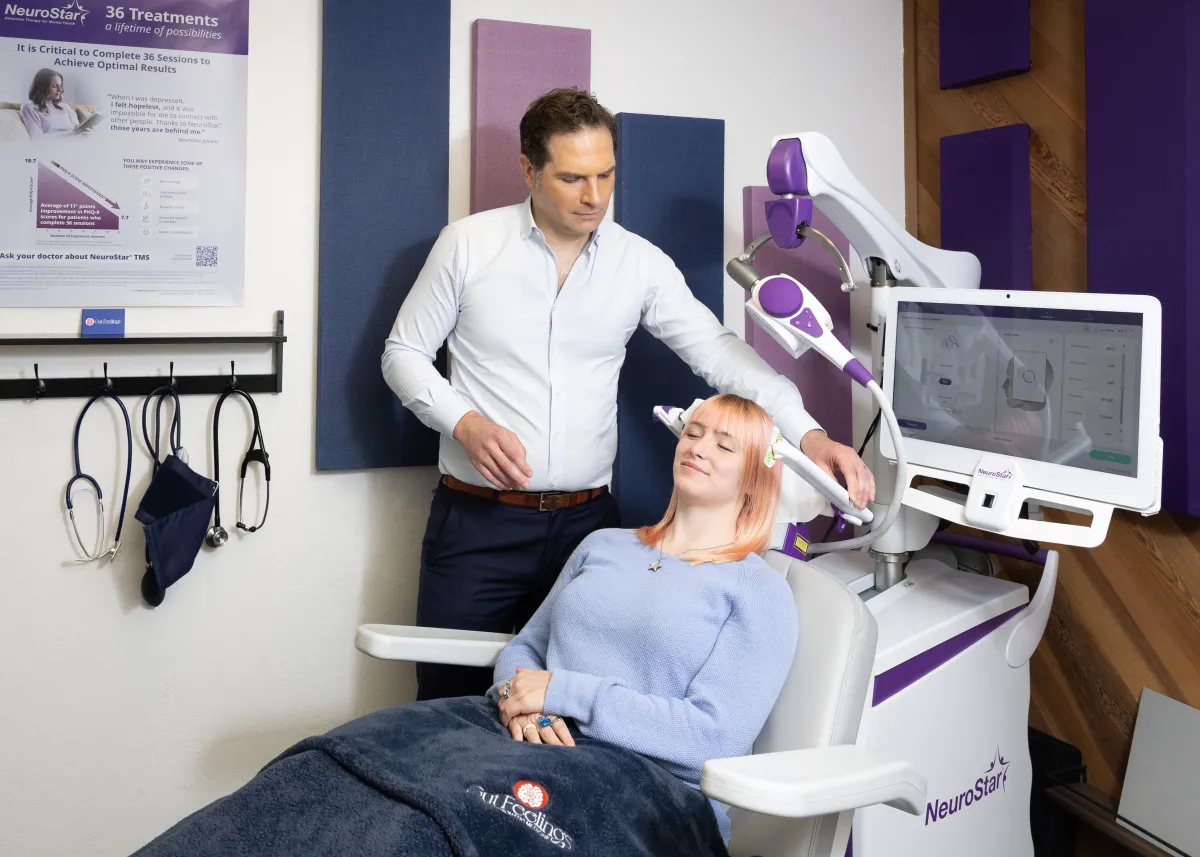Overcome Treatment-Resistant Depression
Get Relief with NeuroStar Advanced TMS Therapy at Gut Feelings in Oakland
Not a medication
Non invasive
Trusted for safety & effectiveness
Many experience results in as little as 2 weeks
Now available at Gut Feelings Psychosomatic Medicine
Do you qualify for TMS?
By checking this box, I consent to Gut Feelings Psychosomatic Medicine contacting me via email, phone, and/or text message regarding my inquiry about TMS therapy and other treatment options. I understand my information will be used according to the Privacy Policy and that I can withdraw consent at any time by contacting the offing or replying STOP. Standard message and data rates may apply for text messages.

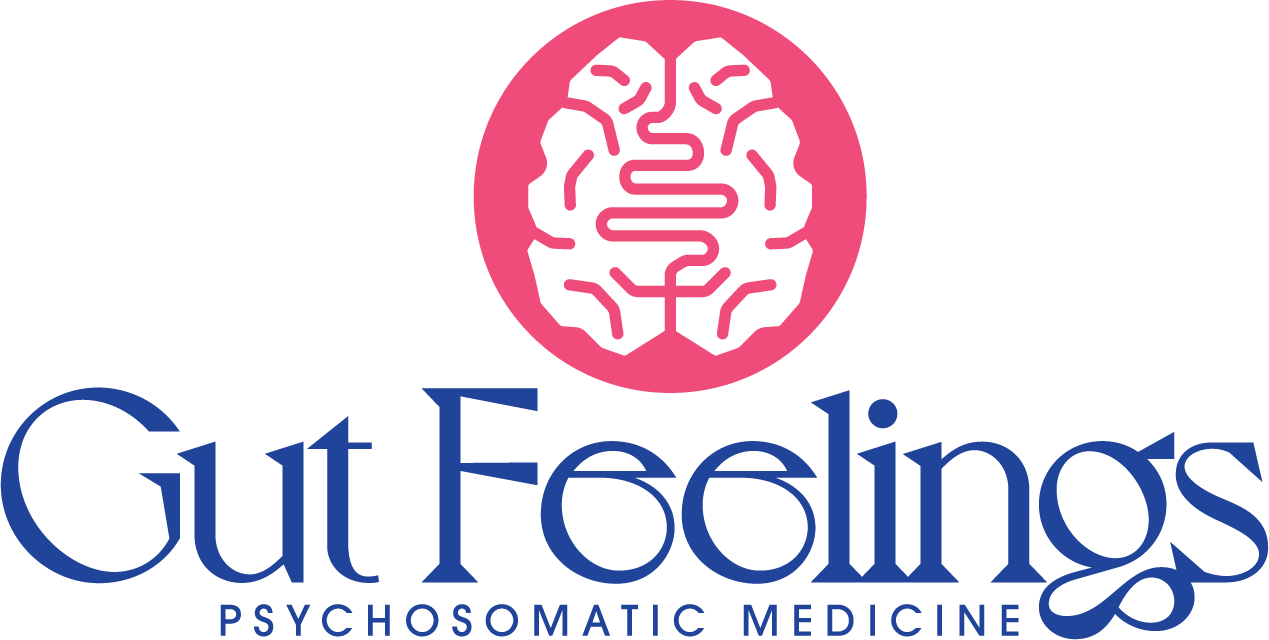
TRUSTED BY





About Gut Feelings Psychosomatic Medicine
At Gut Feelings, we specialize in treating depression at its biological source. Our integrative approach combines advanced treatments like TMS therapy with personalized care addressing mind-body connections.
We understand the link between mental health and physical wellbeing, offering evidence-based treatments for depression that work faster and more effectively than medication alone.
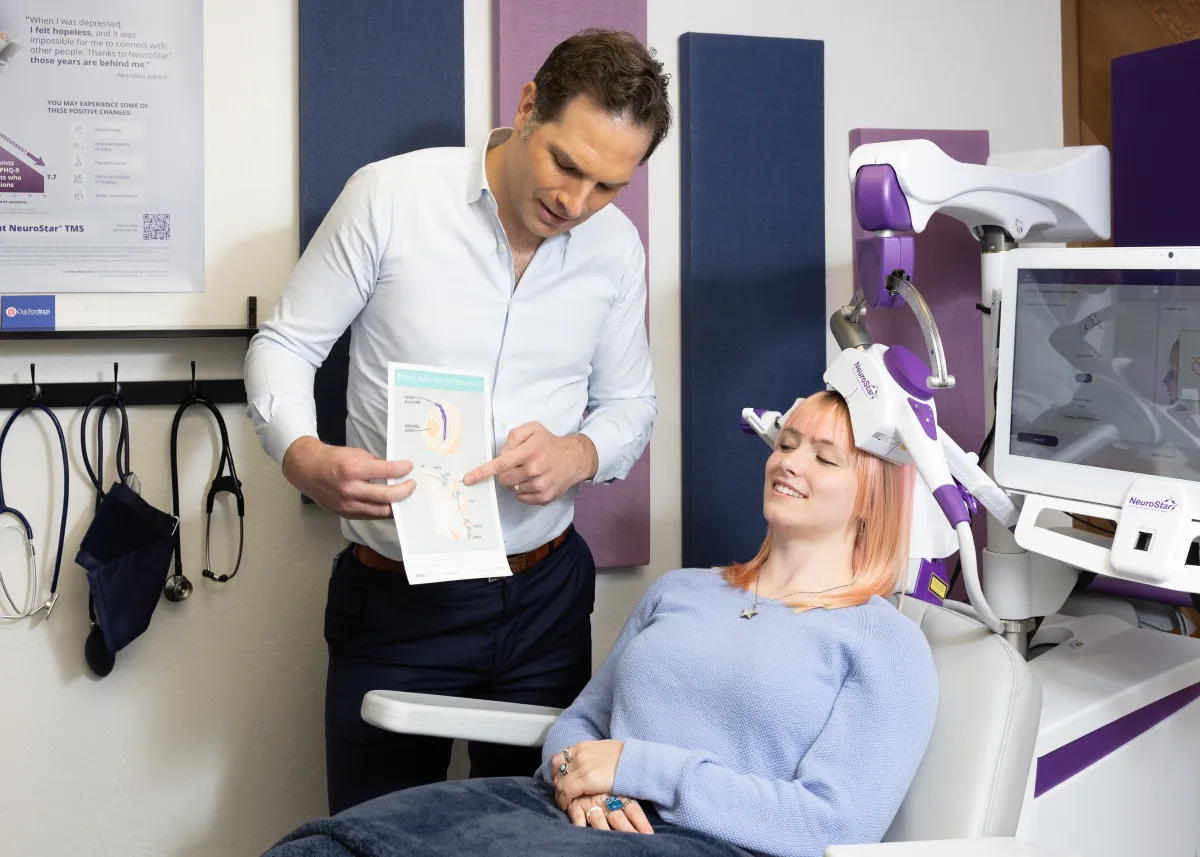
THE PROCESS
How Does It Work?

Free Consultation
Brief assessment with our depression specialist to determine if TMS is right for you

Personalized Treatment Plan
Custom TMS protocol designed for your specific needs and depression profile

Treatment
Quick 5-20 minute sessions with results often beginning within 2 weeks
How NeuroStar Advanced Therapy TMS Works at Gut Feelings Psychosomatic Medicine
NeuroStar TMS Therapy for Depression - Mariah's Story
How Neurostar TMS Works
NeuroStar Advanced Therapy uses targeted magnetic pulses—similar to those in an MRI—to activate areas of the brain that control mood. By stimulating these regions:
- Underactive brain cells become more active
- Natural mood-regulating chemicals increase
- Brain connectivity improves
- Depression symptoms diminish without medication side effects
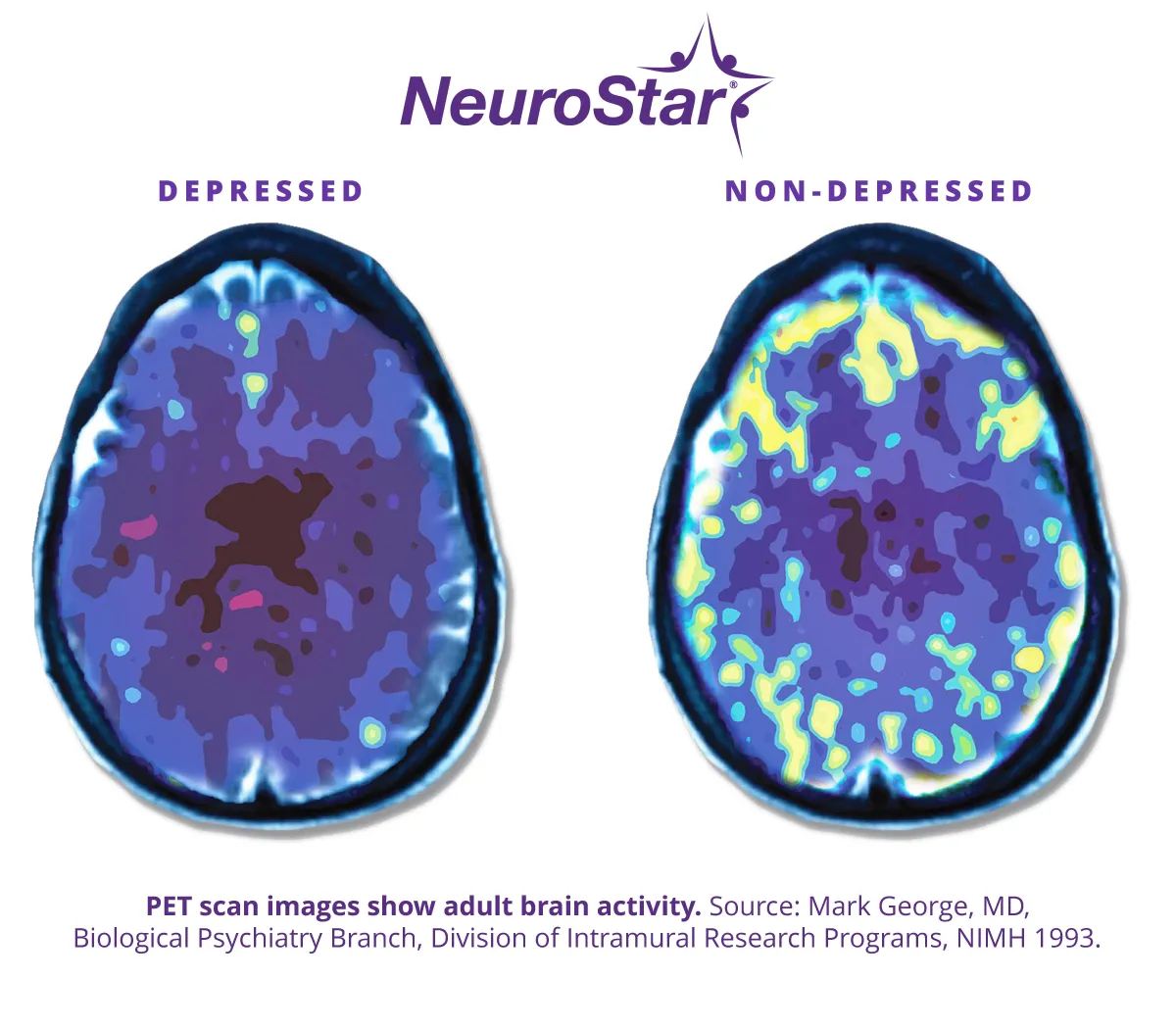

Safe & Effective
TMS is highly effective in treating depression.

Medication-Free
You can now get treatment free of anti-depressant medication.

Cost Effective Treatment
Low cost solution compared to other treatments

No Systemic Side Effects
Most patients experience relief within a few hours to a few days.

Our Testimonials
What Our Patients Are Saying About Gut Feelings Psychosomatic Medicine
Ready To Leave Depression in the Past?
Feeling better faster from the inside out!
Meet The Doctor
Dr. Mike Hoaglin
Dr. Mike Hoaglin is an Oakland, CA-based interventional psychiatrist. After receiving dual engineering degrees in biomedical engineering and electrical engineering from Northwestern University, he graduated from the Perelman School of Medicine at the University of Pennsylvania and received residency training from Duke University Hospital and Brooklyn Hospital Center.
Dr. Mike has treated over 2,500 psychiatric patients and focuses primarily on adult general psychiatry. With various clinical and research interests, Dr. Hoaglin takes a precision approach to mental health care using validated assessments, frequent communication and specialized testing so patients can see objective improvement and feel better sooner.
He also has a special interest in the microbiome and the gut-brain axis. Many patients appreciate his care for gastrointestinal manifestations of psychiatric illness as well.
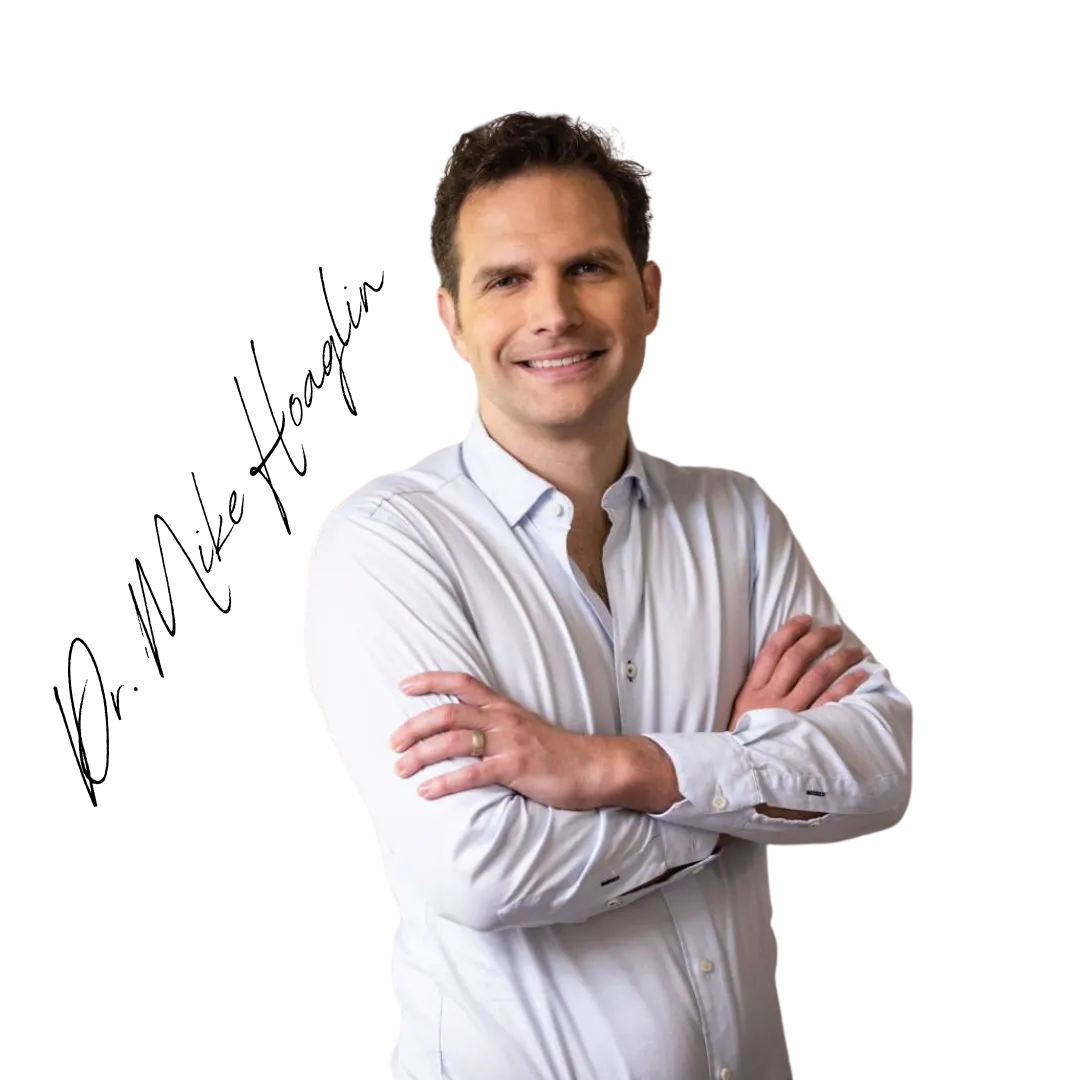
COVERED BY






FAQs
Frequently Asked Questions
Q1. What is Transcranial Magnetic Stimulation (TMS) Therapy for depression?
Transcranial magnetic stimulation, often referred to as TMS is a noninvasive procedure that uses magnetic fields to stimulate nerve cells in the brain to improve symptoms of depression. TMS is typically used when antidepressant medications haven’t been effective, have ceased working, or as an alternative to medication.
Q2. How does TMS Therapy Treatments differ from traditional antidepressants?
TMS does not circulate in the blood throughout the body, so it does not have side effects like weight gain, sexual dysfunction, nausea, dry mouth, sedation, etc. The most common side effects reported during clinical trials were headache and scalp discomfort —generally mild to moderate—occurring less frequently after the first week of treatment.
Q3. Who is a good candidate for TMS Therapy?
It's typically recommended for individuals with treatment-resistant depression, specifically those who have not responded to traditional mental health treatment.
Q4. How long does it take to see results from TMS Therapy Treatment?
People will normally see results within the first two weeks. A typical initial course of treatment is about 19-37 minutes daily over 4-6 weeks.
Q5. Is TMS Therapy safe?
When administered under professional supervision, TMS is considered safe and effective with little to no side effects
Q6. How long do the effects of TMS Therapy Treatment last?
The duration of relief from depression symptoms varies. Some patients may experience benefits for weeks to months. Regular follow-up treatments may be necessary to maintain the effects.
Take the First Step Toward Depression Relief Today
Depression doesn't have to define your life. With TMS therapy at Gut Feelings Psychosomatic Medicine, many patients experience significant improvement in as little as 2-4 weeks.
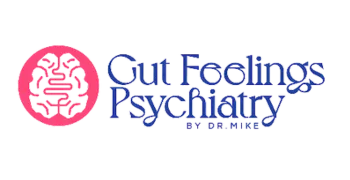
© Gut Feelings Psychosomatic Medicine 2025 | All Rights Reserved | Privacy Policy
Adult Indications for Use
The NeuroStar Advanced Therapy System is indicated for the treatment of depressive episodes and for decreasing anxiety symptoms for those who may exhibit comorbid anxiety symptoms in adult patients suffering from Major Depressive Disorder (MDD) and who failed to achieve satisfactory improvement from previous antidepressant medication treatment in the current episode.
The NeuroStar Advanced Therapy System is intended to be used as an adjunct for the treatment of adult patients suffering from Obsessive-Compulsive Disorder (OCD).
Adolescent Indications for Use
NeuroStar Advanced Therapy is indicated as an adjunct for the treatment of Major Depressive Disorder (MDD) in adolescent patients (15-21).
NeuroStar Advanced Therapy is only available by prescription. A doctor can help decide if NeuroStar Advanced Therapy is right for you. Patients’ results may vary.
Important Safety Information
The most common side effect is pain or discomfort at or near the treatment site. These events are transient; they occur during the TMS treatment course and do not occur for most patients after the first week of treatment. There is a rare risk of seizure associated with the use of TMS therapy (<0.1% per patient).
NeuroStar Advanced Therapy should not be used with patients who have non-removable conductive metal in or near the head. NeuroStar Advanced Therapy has not been studied in patients who have not received prior antidepressant treatment.
